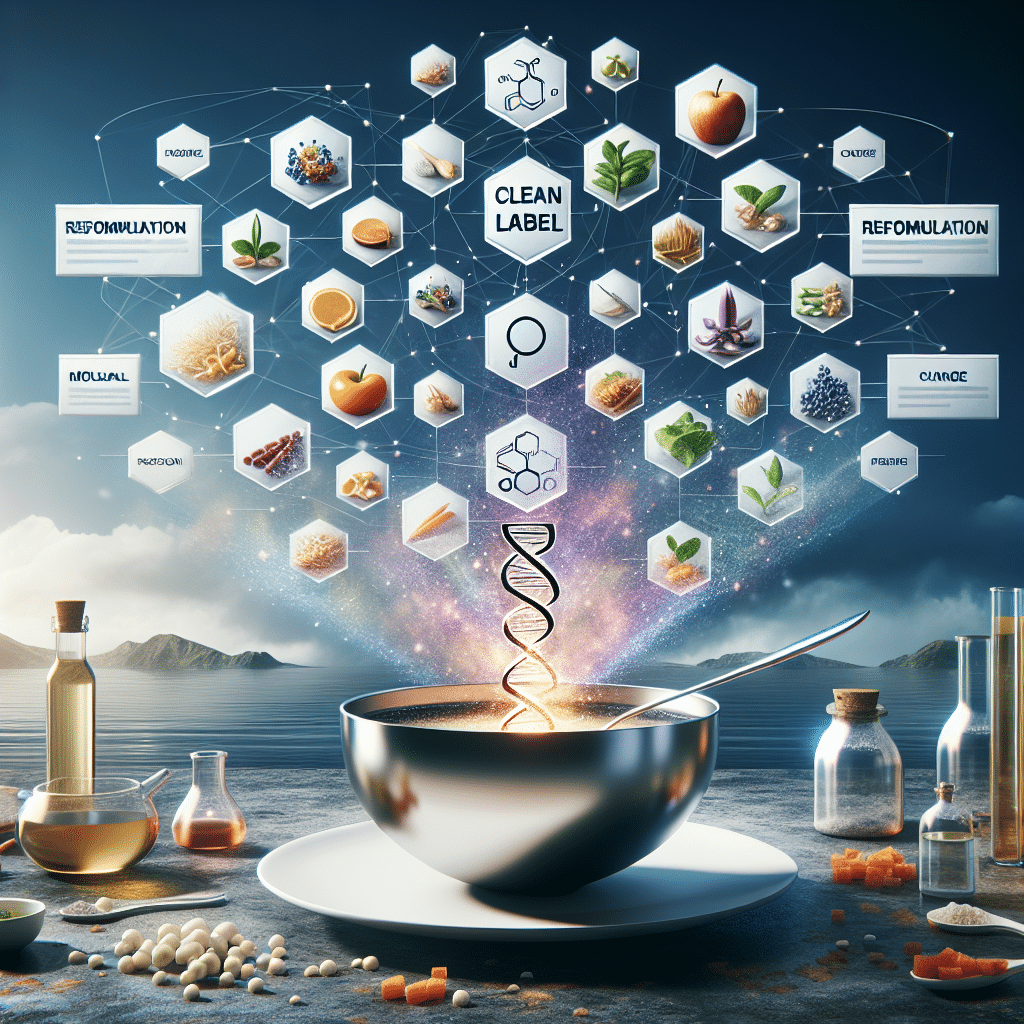Innovating Soups: A Clean Label Reformulation Journey
-
Table of Contents
- Innovating Soups: A Clean Label Reformulation Journey
- The Rise of Clean Label Soups
- Challenges in Soup Reformulation
- Strategies for Clean Label Soup Innovation
- Case Studies of Successful Clean Label Soup Reformulations
- Consumer Response and Market Growth
- Future Trends in Soup Innovation
- Conclusion: Embracing the Clean Label Soup Movement
- ETprotein: Your Partner in Clean Label Soup Innovation
Innovating Soups: A Clean Label Reformulation Journey

The food industry is undergoing a significant transformation as consumers increasingly demand healthier, more natural products. This shift has led to a surge in the popularity of clean label foods—products that contain simple, recognizable ingredients with no artificial additives or preservatives. Soups, a staple in many cultures, are no exception to this trend. Innovating soups to meet clean label standards involves a complex reformulation journey that balances taste, nutrition, and consumer expectations.
The Rise of Clean Label Soups
As awareness of the impact of diet on health grows, consumers are scrutinizing product labels more than ever before. They seek out soups that offer the comfort and convenience of traditional recipes but without the long list of unpronounceable ingredients. This has prompted soup manufacturers to embark on a reformulation journey, aiming to create products that are not only delicious and nutritious but also align with the clean label movement.
Challenges in Soup Reformulation
Reformulating soups to meet clean label criteria is not without its challenges. Manufacturers must consider:
- Flavor: Artificial flavors and enhancers like MSG have been staples in soup production for their ability to deliver a consistent taste profile. Replacing these with natural alternatives requires careful consideration to maintain the soup’s appeal.
- Preservation: Traditional soups often contain preservatives to extend shelf life. Finding natural preservatives that are as effective can be a complex task.
- Texture: Thickeners and stabilizers contribute to the mouthfeel of soups. Clean label alternatives must be sourced to replicate this texture without artificial ingredients.
- Color: Consumers eat with their eyes first, so maintaining the vibrant colors of soups without synthetic dyes is crucial.
Strategies for Clean Label Soup Innovation
To overcome these challenges, companies are employing various strategies:
- Utilizing Whole Foods: Incorporating whole vegetables, grains, and proteins can improve the nutritional profile and satisfy clean label demands.
- Exploring Natural Preservatives: Ingredients like vinegar, salt, and sugar can act as natural preservatives while also contributing to flavor.
- Investing in Research and Development: Creating clean label soups often requires significant R&D to discover suitable natural ingredient substitutes.
- Engaging with Suppliers: Building strong relationships with suppliers ensures access to high-quality, natural ingredients.
Case Studies of Successful Clean Label Soup Reformulations
Several brands have successfully navigated the clean label reformulation process. For instance, Campbell’s Soup Company revamped its classic recipes to remove artificial ingredients, opting for natural alternatives like turmeric for color and ginger for flavor. Similarly, Pacific Foods focuses on organic ingredients and sustainable practices, offering a range of soups that boast a clean label.
Consumer Response and Market Growth
The market response to clean label soups has been overwhelmingly positive. According to a report by Innova Market Insights, clean label products have seen a compound annual growth rate of over 6% in recent years. This trend is expected to continue as more consumers prioritize health and transparency in their food choices.
Future Trends in Soup Innovation
Looking ahead, the soup industry is likely to see continued innovation in the following areas:
- Plant-based Proteins: As vegetarian and vegan diets gain popularity, plant-based proteins will become more prevalent in soups.
- Functional Ingredients: Ingredients with health benefits, such as immune-boosting properties, will be incorporated into soup recipes.
- Global Flavors: With a growing interest in international cuisines, exotic flavors will play a larger role in soup offerings.
Conclusion: Embracing the Clean Label Soup Movement
The journey to clean label soup reformulation is complex but necessary to meet consumer demands. By focusing on natural ingredients, transparency, and innovation, soup manufacturers can create products that are not only healthier but also align with the values of today’s informed consumers. The key takeaways from this journey include the importance of R&D, the need for strong supplier relationships, and the potential for market growth. As the industry continues to evolve, clean label soups are set to become a staple on grocery shelves worldwide.
ETprotein: Your Partner in Clean Label Soup Innovation
For soup manufacturers looking to innovate with clean label formulations, ETprotein offers a range of high-quality plant proteins that can enhance the nutritional profile of soups without compromising on taste or texture. Their products, including organic rice protein, clear pea protein, and various seed proteins, are ideal for creating hearty, nutritious soups that cater to health-conscious consumers.
ETprotein’s commitment to non-GMO, allergen-free ingredients ensures that their plant proteins are suitable for a wide audience, including those with dietary restrictions. By incorporating ETprotein’s products into your soups, you can confidently meet the clean label standards that consumers expect.
About ETprotein:
ETprotein, a reputable plant protein vegan protein Chinese factory manufacturer and supplier, is renowned for producing, stocking, exporting, and delivering the highest quality organic bulk vegan protein and plant proteins. They include Organic rice protein, clear rice protein, pea protein, clear pea protein, watermelon seed protein, pumpkin seed protein, sunflower seed protein, mung bean protein, peanut protein etc. Their offerings, characterized by a neutral taste, non-GMO, allergen-free attributes, cater to a diverse range of industries. They serve nutraceutical, pharmaceutical, cosmeceutical, veterinary, as well as food and beverage finished product distributors, traders, and manufacturers across Europe, USA, Canada, Australia, Thailand, Japan, Korea, Brazil, and Chile, among others.
ETprotein specialization includes exporting and delivering tailor-made protein powder and finished nutritional supplements. Their extensive product range covers sectors like Food and Beverage, Sports Nutrition, Weight Management, Dietary Supplements, Health and Wellness Products, and Infant Formula, ensuring comprehensive solutions to meet all your protein needs.
As a trusted company by leading global food and beverage brands and Fortune 500 companies, ETprotein reinforces China’s reputation in the global arena. For more information or to sample their products, please contact them and email sales(at)ETprotein.com today.














